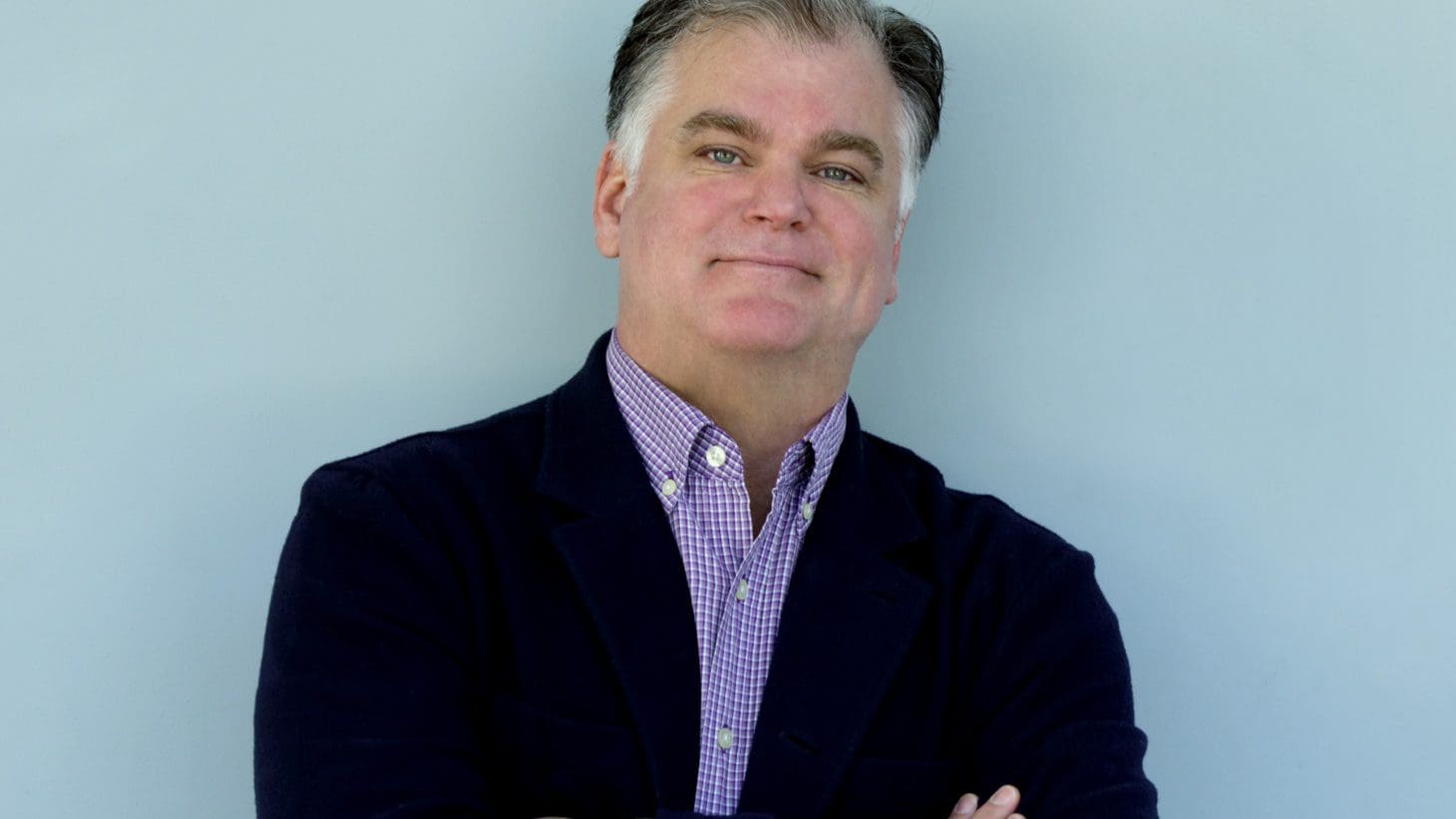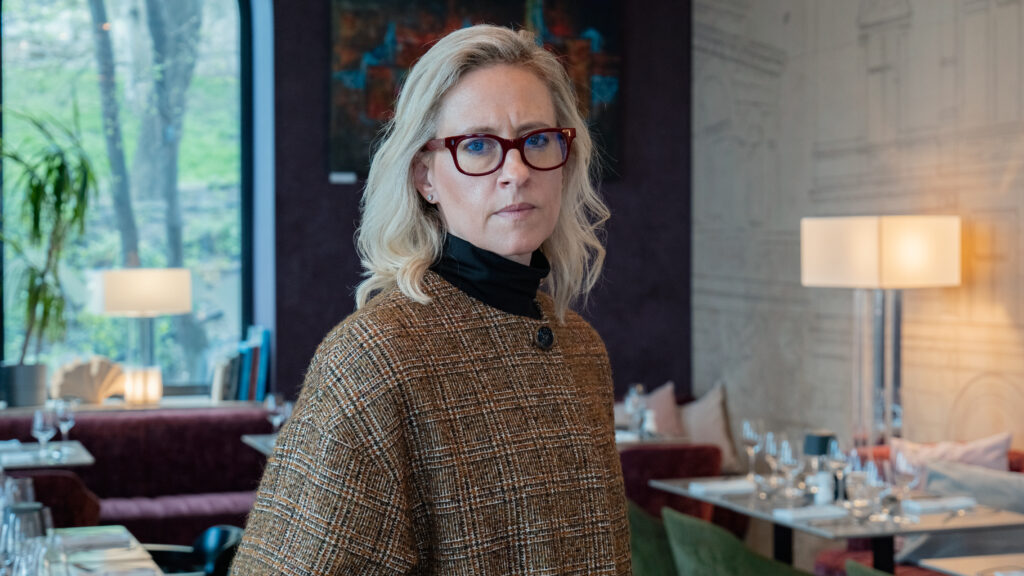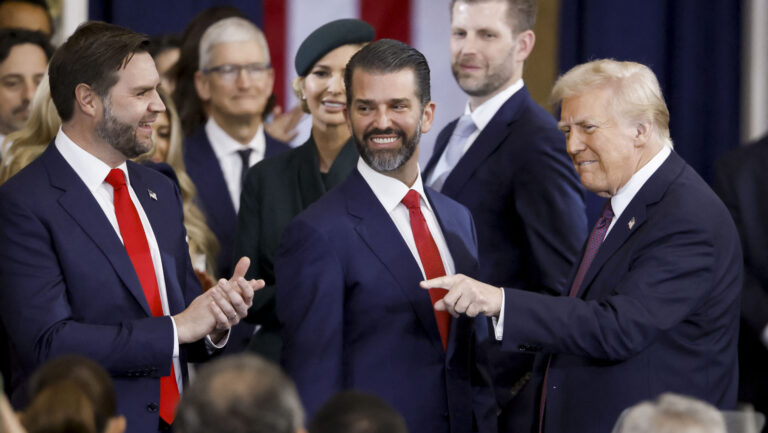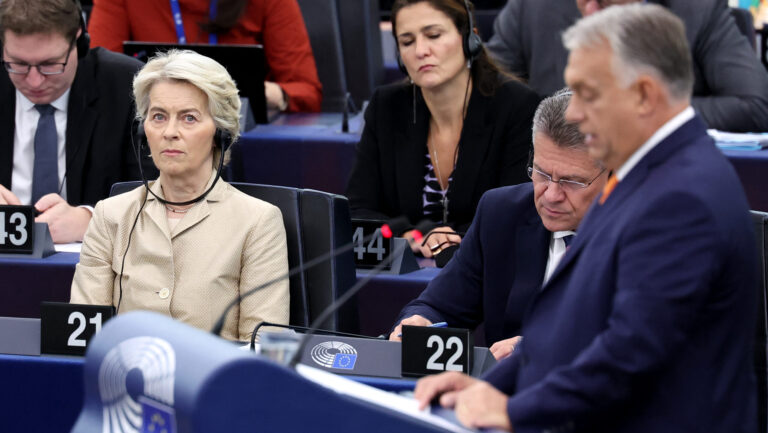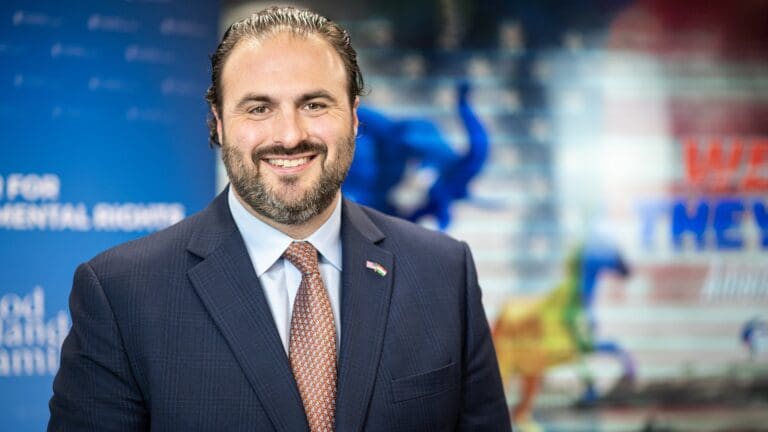How to tell your story which reflects your values and corresponds to reality alike while creating a widely likable media phenomenon at the same time? The latest guest of the Danube Institute, Rob Long, told his audience all about that on 1st December at the Lónyay-Hatvany residence.
The speaker of the evening was introduced by Director of the Danube Institute John O’Sullivan who spoke about Mr Long as an old friend and as a stupendous creative mind, with a wide range of different feats, from producing successful sitcoms through leading a podcast to writing a series of satirical flicks on Al Gore. Mr Long took over following through the thread of the career story. He drew a contrast with his own career start, that ‘began at the gate’ meaning both the literal and the professional entry point of a Hollywood studio, with today’s media universe, which offers a bewildering range of opportunities to content creators. Gates for content approval have disappeared, all the new online companies are hungry for a brand new story, the next big thing. But how does one tell a really good story? How to tell a story that rings true about national identity and collective experiences; that kind of cinema which some Hungarian conservatives are striving for a long time?
Mr Long brought along five examples of exquisite film making which reflect on the national identity and historical experience of certain people to explain this topic. His first choice, of course, was American: The Best Years of Our Life (1946) that tells a story of heroism in war, friendship, homecoming and true love. He concentrated on the theme of the ‘return of a warrior’ that can be explained as a very old and common motif in human art, and also one that hit home really hard to an American audience in 1946. Mr Long highlighted that both the environment and the hopeful nature of the homecoming scene reflected the longing of the American soul: family, service of the country, and a belief in the positive outcome of things.
It was interesting to juxtapose these messages with the next movie, the Children of Paradise (1945). ‘This is the most French thing you will see’ chuckled Mr Long, while explained the eclectic plot of the movie, its themes of disappointment, unrequited faith and love, and affection to symbolism. He explained this as the symbol of Gallic experiences of capricious changes of life and need for settling for non-ideal life situations. Mr Long emphasized that while this French movie is totally different in themes from the American one, both represent a lived historical truth, the real zeitgeist of the early postwar period. He noted that while both narrated pivotal national experiences, none of them were explicitly tailor-made to deliver such a message. They simply tried to tell an honest story about their respective realities, and they succeeded.
The analysis of this honesty continued in relation with the Bicycle Thieves, (1948) that was introduced as a representative of Italian national experiences. The narrative stuck with the Second World War and its effects: hardship, raging social injustice and the little roundabouts of life to make a living. The speaker explained that even the handling of the camera in contemporary Italian films was supposed to make a point, the technical details make the film sloppy and unruly, nothing resembling strictly shot and directed Hollywood epics, but this is exactly what delivers notions of a shady, unruly and sloppy state of affairs in Italy that was both a post-war experience and a long-term life background of many Italian generations. It is essential to note that even our technical and organizational attitudes can be part of the story that we want to tell; it is not necessary that we make everything in a certain, maybe pretty foreign style just to create a good and widely praised movie.
Switching out of postwar experiences, Mr Long then presented a pre-war epic, The Four Feathers (1939)
Instead of concentrating on its heavy colonial overtones, the speaker emphasized the general “moral propaganda” value of the piece that sees a young British cavalry officer setting out to take part of the British Army’s Soudan Campaign of 1898 and saving his friends in order to reclaim his honour, which was supposedly lost with him resigning from his military rank and post at the outset of the campaign. Mr Long highlighted that the movie is an ‘honest piece of propaganda’ telling why Britishmen should go to war once more, for higher human and national values. He explained that propaganda is not necessarily about making somebody changing his mindset about certain things, but rather making somebody think that most people have a given opinion about things, and he should do likewise. With its honesty, absurd humor and positive reflections of military valor, The Four Feathers certainly brings home its aims.
The evening was summed up with another movie about motivating people to struggle for their nation with a hint of the geopolitics of today. The Chinese movie Ip Man (2008), which presents a story of a Chinese martial artist fighting Japanese invaders, tries to unify the tradition of Chinese revolutionary movies with the classics of Hong Kong martial arts cinema, and it succeeds, in the opinion of Mr Long. As another propaganda piece, it suggests that the “old” part of China and the then-recently returned Hong Kong have a common tradition of struggle and common goals to make China great. It is a classic national hero-movie, showing a multi-identical hero (a Hongkonger fighting for mainland political causes) to be revered by young moviegoers and patriotic elements of Chinese society alike. It also reflects the central fact of the recent Chinese past: the emergence out of the ‘Century of Humiliation’ by the hands of Western and Eastern invaders. In this sense, it is also a relevant presentation of Chinese national identity.
Mr Long’s closing remarks braved the audience to set out and tell their very own stories, again emphasising the lack of gatekeepers and content-hunger of the current media universe. All you need is good, honest, and reality-reflecting stories. Is it a cliché? Clichés are named because they are common; because they are true. Are they too predictable, and there is too much American-style happy ending? Not a problem: in life, there are happy endings, be it so surprising. Maybe if the Hungarian storytellers of the future will adhere to Mr Long’s advice about presenting national identity in movies, we will all have happy endings, this time for the greater good of Hungarian culture.

